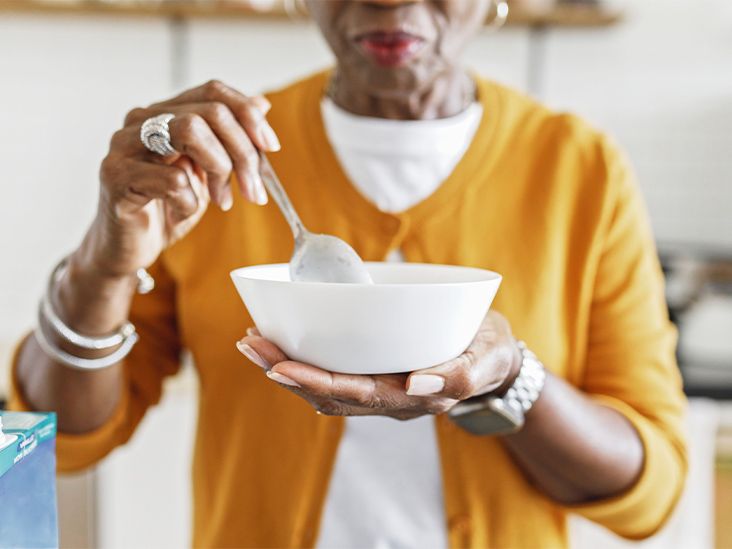Eating Yogurt Could Reduce Your Risk of Depression and Anxiety, Study Finds
Mental health is complex, but new research suggests that a bacteria found in fermented foods and yogurt may help prevent depression and anxiety.
New Study Reveals Surprising Link Between Gut Health and Mental Wellbeing
Researchers at the University of Virginia School of Medicine have discovered that the bacterium Lactobacillus helps the body manage stress, potentially preventing the onset of mental health conditions like depression and anxiety.
The study, which involved mice, found that transferring gut bacteria from stressed mice to germ-free mice led to depression and anxiety-related behaviors. The researchers also found that mice without Lactobacillus exhibited elevated stress responses and lower levels of an immune factor called interferon-gamma, which is involved in regulating stress response.
Gut-Brain Axis: The Surprising Connection Between Gut Health and Mental Health
The study’s authors say, “These results provide a novel framework to understand the roles of the bacterial gut microbiome and the immune system in mood disorders.”
Lactobacillus’s role in supporting mental health can be attributed to its impact on the gut-brain axis. “The gut is often called the ‘second brain’ due to the bidirectional communication between the gut and the central nervous system,” says nutritionist Sas Parsad. “When abundant in the gut, Lactobacillus appears to modulate this communication, influencing the production of neurotransmitters like serotonin and gamma-aminobutyric acid (GABA), which play key roles in mood regulation.”
Foods Rich in Lactobacillus: A Holistic Approach to Mental Health
If diet is one area in which you want to improve, then Parsad recommends increasing your intake of Lactobacillus by incorporating fermented foods into your diet, such as yogurt, kefir, sauerkraut, kimchi, and kombucha. Ideally, you’ll consume one serving of fermented food per day. If that feels like a tall order, high-quality probiotic supplements containing Lactobacillus strains are a good alternative.
Other Foods that Support Mental Health
Parsad notes that a diet rich in omega-3 fatty acids (found in fatty fish, flaxseeds, and walnuts) has been associated with reduced depressive symptoms. Other foods that may benefit mental health include antioxidant-rich fruits and vegetables, whole grains, and foods containing magnesium (i.e., leafy greens, nuts, and seeds).
Conclusion
The findings of this study add weight to the idea that the foods we eat can contribute to our mental wellbeing. While diet is just one aspect of mental health, a bacteria like Lactobacillus may improve resilience to stress, potentially lowering the risk of developing a mental health condition like depression and anxiety. However, it’s essential to remember that diet is just one aspect of mental health, and sometimes medical treatment and/or professional support is needed.
FAQs
Q: Can Lactobacillus really help reduce depression and anxiety?
A: Yes, research suggests that Lactobacillus may help the body manage stress, potentially preventing the onset of mental health conditions like depression and anxiety.
Q: What foods are rich in Lactobacillus?
A: Fermented foods like yogurt, kefir, sauerkraut, kimchi, and kombucha are rich in Lactobacillus. You can also consider high-quality probiotic supplements containing Lactobacillus strains.
Q: How can I incorporate Lactobacillus-rich foods into my diet?
A: Aim to consume one serving of fermented food per day. If that feels like a tall order, start with small amounts and gradually increase your intake. You can also consider supplementing with probiotics.
Q: What other foods support mental health?
A: A diet rich in omega-3 fatty acids, antioxidant-rich fruits and vegetables, whole grains, and foods containing magnesium (i.e., leafy greens, nuts, and seeds) may benefit mental health.
Q: Can I rely solely on Lactobacillus-rich foods and probiotics for mental health?
A: No, Lactobacillus-rich foods and probiotics are a complementary approach to mental health. While they may help, a balanced diet and a healthy lifestyle are also essential.
Recommended Products:
-
Sale!

Lions Mane Supplement Capsules with Turkey Tail – Nootropic Brain Fog, Focus, Memory, Nerve Function, & Immune Support Supplement – Non-GMO 1200 Mg Lions Mane Mushroom Supplement, 120 Caps.
Original price was: $29.99.$24.99Current price is: $24.99. Buy Now -

TAHIRO Vegan Omega-3 Softgels – Plant-Based Supplement with DPA, DHA & EPA – Nutrients for Men, Women and Pregnant Women – Supports Brain Health – Prenatal & Joint Supplements, 1000mg
$21.95 Buy Now -
Sale!

2 Pack Liquid Magnesium Glycinate Drops with Taurate & Citrate, Calm Magnesium with Omega3, L-Theanine, Potassium, Ashwagandha, Vitamin for Sleep, Muscle, Immune Health, Sugar-Free Strawberry Flavor
Original price was: $28.99.$21.74Current price is: $21.74. Buy Now



